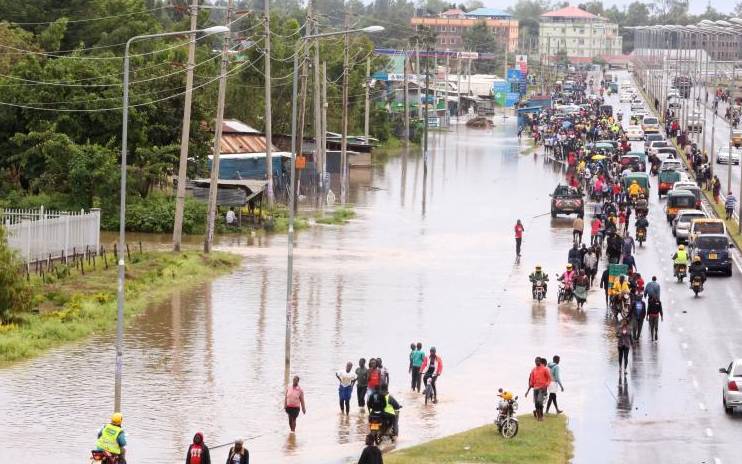×
The Standard e-Paper
Home To Bold Columnists

Fresh floods at Nyamsaria estate in Kisumu County after river Auji burst its banks following the heavy rainfall experienced in the region on December 26, 2019. Several families were displaced. [Collins Oduor,Standard]
Two people have been swept away by raging waters in fresh floods that have ruined Christmas mood in Kisumu County, raising the death toll to six across Nyanza within just two weeks.